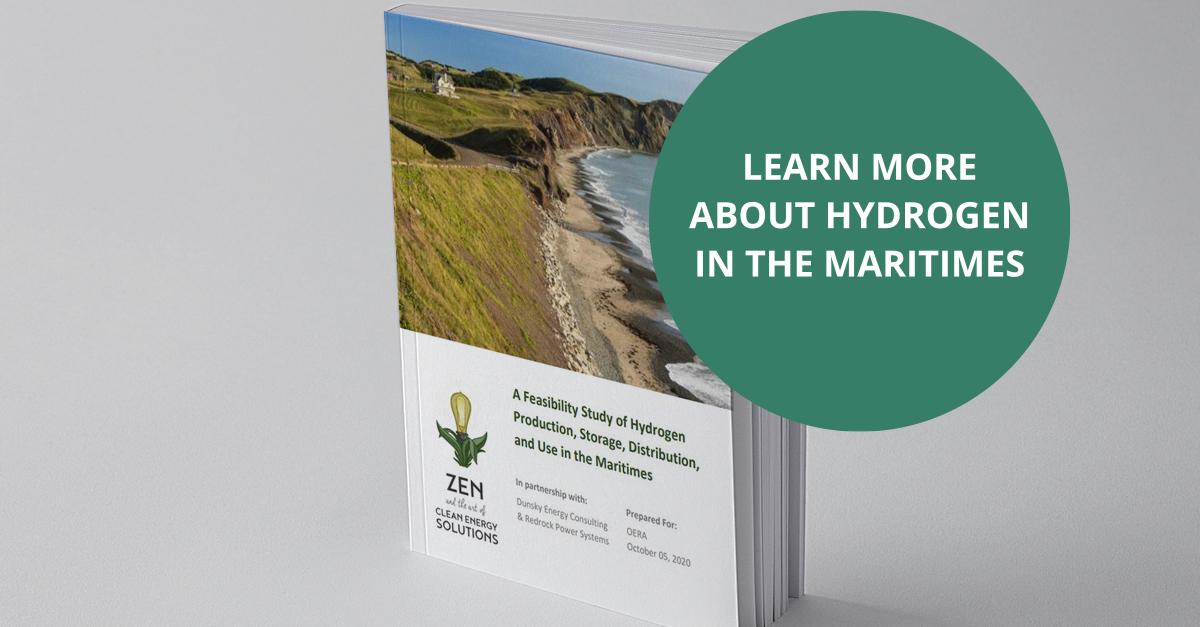By: Alisdair McLean, Executive Director, OERA
We all know the pandemic is the most important challenge facing humanity at this moment, but some are also looking at how we apply the lessons we’re learning to the equally important though slower-moving problems presented by climate change. While we know we’ll have a vaccine for COVID-19 in the not-too-distant future, there won’t be any similar sort of quick fix to protect us from rising global temperatures.
The Atlantic Loop – a proposed electricity transmission ring that would connect the Atlantic Provinces and Quebec – would be a tremendous shot in the arm for our region economically and environmentally. But it’s not a vaccine for our carbon troubles. To address those, we’ll need a mix of many solutions – more renewable energy, increased energy efficiency, zero-carbon fuels and even technologies that don’t exist yet.
To determine our path to a lower carbon future, it’s important that we evaluate all of the possibilities that could help us along the way. That’s why OERA – an organization dedicated to helping achieve a more sustainable energy future – is leading research into the energy and environmental systems and technologies that could be a part of the net zero solution for Nova Scotia and all of Atlantic Canada.
As part of this ongoing effort, we recently released a comprehensive study exploring what role there might be for hydrogen in our region’s energy mix moving forward. The Feasibility Study of Hydrogen Production, Storage, Distribution and Use in the Maritimes was coordinated by OERA and funded by Heritage Gas Limited, Liberty Utilities, the Nova Scotia Department of Energy & Mines and the Atlantic Canada Opportunities Agency. In conducting the study, lead investigator Zen Clean Energy Solutions reviewed all aspects of hydrogen production and use and evaluated related economic and technical constraints and opportunities for the Maritimes.
The study found hydrogen can play a key role in the Maritimes’ future energy mix. It shows that hydrogen could be produced locally using biomass at a lower cost than incumbent fuels and that large amounts of hydrogen could be generated with a zero-carbon footprint using wind energy. Hydrogen could also be used for grid-scale energy storage, as a fuel for heavy duty transportation and as a source for industrial and residential heat. If widely adopted in our region, hydrogen could make up about 20 per cent of delivered energy by 2050 and eliminate about 20 per cent of our greenhouse gas emissions.
Hydrogen can also be good for local business. Planetary Hydrogen, a start-up that produces hydrogen and combats ocean acidification, is moving to Nova Scotia to commercialize its technology. And marine operators pursuing service contracts in the massive offshore wind industry in the eastern United States know they would be more competitive if they adopted hydrogen fuel cells to lower their carbon footprint.
For the Maritimes to realize hydrogen’s full potential, we must take a regionally cooperative approach to energy – much like what is being proposed for the Atlantic Loop. The study recommends developing a clean energy roadmap and creating a strong regulatory framework with incentives to transform and decarbonize the region’s energy systems. It also suggests aligning action plans and policies and engaging in high-profile projects that encourage local industry participation.
We must be proactive and plan now, so our region benefits from the opportunities that hydrogen presents. Just as we have learned through our response to the pandemic, if we all do our part, we’ll achieve a positive outcome together.

